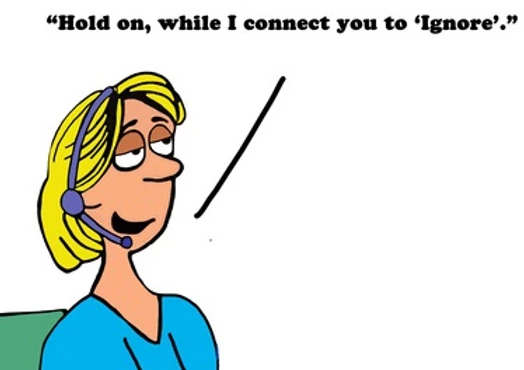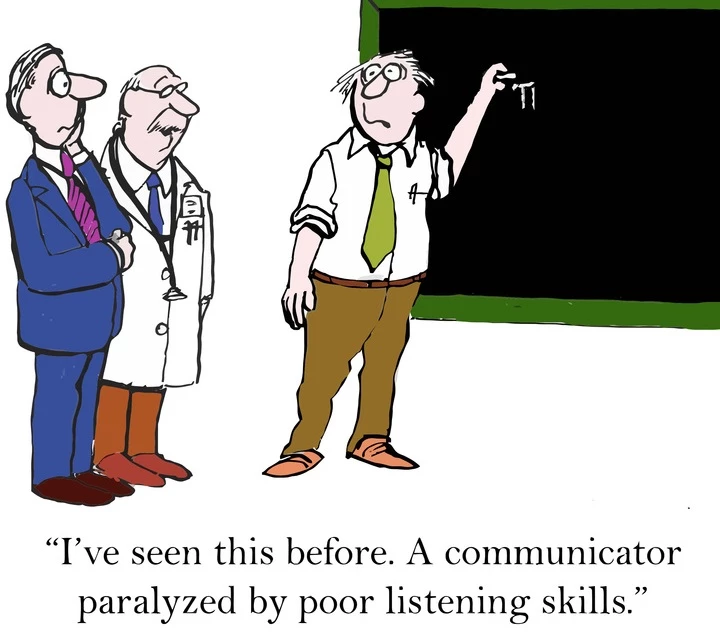Today, in a spectacular example of “do what I say, not what I do”, I want to talk about listening. In the modern lexicon of communication skills, listening has been largely over-shadowed by things like “engagement”, but for those of us of a particular vintage, there was a time when listening was one of the jewels in the crown of social media.
The great thing about social, we were told, was how it was going to democratise communications. Instead of a one-way flow of information, which was how it had been since forever, we were going to share. Governments would listen to people; brands and suppliers would listen to customers. Celebrities… OK, it breaks down with celebrities, but anyway…
I don’t know how long that state of optimism lasted, but it felt like about half an hour. Two things went wrong with the Brave New World, and while they both seem like prime examples of the That Was Always Going To Happen genre, they really did catch the fledgling industry by surprise.
First, there was what I broadly categorise as People Can’t Be Trusted. The chief offenders here are any kind of website or service that is powered by reviews, but it’s a broad rule you can apply more widely. I’ll quickly say that I don’t mean everyone can’t be trusted, but that when you are dealing with a catchment area of thousands or millions, a small percentage is still a decent number.

Reviews just couldn’t be trusted. Venues or vendors would get great reviews – as provided by their friends and family. Or, as I experienced on Amazon, they would wheedle and manipulate to get 5-star reviews. Note, they wouldn’t do anything to actually merit those 5-star reviews, like, you know, improve customer service…
The inverse was just as true. Consumers started giving bad reviews in the hope of attracting some kind of bribe to withdraw or reverse it. Or, more commonly, people just went to extremes – everything was either 5-star great or 1-star awful. Ratings became pointless. Comments and reviews went in the same direction, only at least there a little effort has to be made to complain/praise, which weeds out the lazy folk.
The second problem is best summarised as People Can Be D***s. Not all d***ery is bad; some of it is quite funny. This is why we have Boaty McBoatface and a surprising number of non-food pictures showing up in a promotion called Show Us Your Pizza (think about it…). Again, it’s not everybody, not even close, but it’s enough. The moderating industry exists because of them.
All right. Now, it may seem that this blog has gone in a somewhat cynical direction that is about to suggest that you shouldn’t listen at all. Nothing could be further from the truth. It’s just that listening is hard, and you can’t fit it on a message calendar, or achieve it via a tweet. It takes time and effort.

Good brands and good agencies soon learned that investing in good listening pays off. It’s that old saw about knowing your customers; before you can start enhancing your reputation, you need to know what it is. And what I’d suggest is that trotting out a ratings mechanic or a survey is mostly going to generate noise, not answers. We all need to post a lot less, and listen a lot more.
And to those who suggest that someone who blogs 600 words about listening might not be following their own advice, I can only say: Yeah, you got me. Luckily, the guys at StrawberrySocial aren’t all me, and they do put their customers first, listening to the brand, and then listening to who the brand should be listening to.
It may be that, especially with all the revelations about the misuse of data, that the good ship Brave New World has long sailed. But there is still huge value to be had from good social, so long as you listen, and see past the sound and fury of modern consumer relations. Thank you for listening.



 June 8, 2018
June 8, 2018  Share This Post
Share This Post